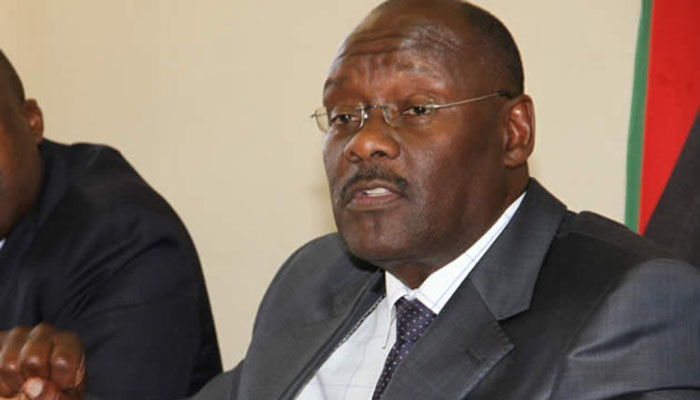
The Sunday Mail

Phillipa Mukome-Chinhoi
RAISING funding for programmes to fight HIV, TB and malaria, among other infectious diseases, will be one of the key discussions that will precede the 22nd International Conference on AIDS and Sexually Transmitted Infections (ICASA), which will be held in Zimbabwe between December 4-9.
Speaking at a press conference in Harare on Monday, ICASA 2023 president Dr David Parirenyatwa said the ultimate goal of the conference was to come up with policies and programmes to reach the UN 2025 goals and targets enshrined in the African Union’s Agenda 2063.
“I have spoken to the President of Zimbabwe, His Excellency Emmerson Mnangagwa, who is extremely pleased that this conference is happening in Zimbabwe,” he said.
“Zimbabwe is fully ready to receive over 8 000 participants from across Africa who will be coming to attend this meeting here in Harare. We are very clear in our minds that the fight against AIDS must continue as our theme of 22nd ICASA says, ‘AIDS is not over’,” he said.
World Head Organisation head of antimicrobial awareness, advocacy and campaigns Mr Thomas Joseph, who attended the presser, said people living with HIV are more likely to develop infections like tuberculosis, fungal meningitis and other severe bacterial infections.
HIV drug resistance is considered to be a huge challenge.
It is estimated that 10 percent of adults have resistance to some of the routinely used first-line treatment.
Antiretroviral therapy, however, has saved millions of lives globally.
Drug resistance in HIV is primarily driven by misuse and poor adherence to treatment.
“I hope that this year’s ICASA conference will be successful in accelerating the HIV agenda in the continent so we can end this epidemic together before 2030,” said Mr Joseph.
“This is complicated by the threat of antimicrobial resistance (AMR), making those infections difficult or impossible to treat. Antimicrobial resistance, or AMR, is a problem driven by misuse and overuse of antimicrobial medicines, including antibiotics and antivirals, and results in critical medicines losing effectiveness to treat infections. Antimicrobial resistance is associated with five million deaths a year. Besides this, there is the huge burden of morbidity and healthcare expenditure that can affect household welfare severely. The World Bank estimates that Global GDP could fall by US$1 to US$3,4 trillion annually after 2030 due to AMR.”
Treatment options, Mr Joseph added, are running out, while new drugs are not coming into the market.
However, it is believed that even when new medicines finally reach the market, low- and middle-income countries (LMICs) are not able to access them due to intellectual property and pricing constraints.
“Antimicrobials should be regarded as global public goods. Country governments should strengthen their health systems and push for universal health coverage so all have access to needed antimicrobials prescribed by registered healthcare providers,” he said.
The World AMR Awareness Week is celebrated between November 18-24 every year.
In a speech read on his behalf by his Permanent Secretary Dr Aspect Maunganidze, Health and Child Care Minister Dr Douglas Mombeshora said all was now in place for the conference.
“You may have read that recently there was an outbreak of cholera in some parts of Zimbabwe. I wish to assure you all and our visitors that this isolated outbreak has been contained and our surveillance system is exceptionally effective and has picked all cases and they have been treated,” he said.
Zimbabwe’s home-grown domestic funding initiative — the National AIDS Trust Fund — is considered exemplary around the world and will be shared at a high-level meeting of ministers of finance that will precede the conference.



